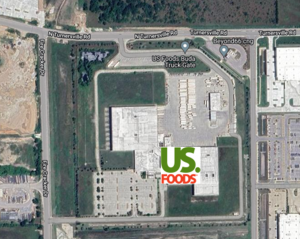By Paige Lambert
Central Texas serves as the richest area of the state’s history. Hays County historians are now trying to preserve some of the history at the Antioch Colony Cemetery in Buda.
Jo Landon, Hays County Historical Commission cemetery chair, and twins Minnie Harper and Winnie Moyer, have spent two years trying to get a Historic Texas Cemetery designation for the revered property.
They were notified last week the project is in the top pool of hundreds of other designation projects, Landon said.
“It usually takes 12 to 18 months to be considered,” Landon said. “We just have to be patient and wait our turn.”
The designation will officially mark the cemetery’s place in the county deed records as a place worth preserving. The designation will also document every inch of the cemetery in the case of vandalism, fire or any natural disaster.
The state requires documentation of the cemetery’s history, adjacent landowners and the cultural heritage.
“You just start somewhere and one thing leads to another,” Landon said. “It’s a puzzle and you just try to find the pieces that you can put together.”
Landon found multiple accounts of the cemetery’s history, which was a stark difference to other cemeteries in Hays County.
Multiple books, including the famed “Limestone and Legends,” mention the landmark colony and its settlers. Local historians have also chronicled the cemetery’s history since 1941.
“It’s exciting when you run across these old documents,” Landon said. “And it’s just reading through and setting your mind to that time in history.”
The cemetery is the final resting place of the first African American settlers in the county. Joseph Rowley sold the land in 1880 to the former slaves from the Mountain City Plantation.
“Joseph Rowley sold them land so they wouldn’t have to live on a white man’s land,” Moyer said. “So that they have their own land.”
Rowley sold three tracts of land for $2.50 an acre to the settlers, instead of the typical $5.00. It was on the condition that the land could only be used by the colony and they build a church and cemetery, Harper said.
“They all had businesses and my father worked on the gin,” Harper said. “It was all for the benefit of the community and generations to come.”
Some of the descendants moved to Austin, and others, including Harper and Moyer, still live in Antioch Colony.
Harper said the younger generations of her family live in the area as well and want to preserve the history.
“We want to make sure our grandchildren understand what their great-great-grandparents did,” Moyer said.
Volunteers from the surrounding area, such as the Buda United Methodist Church and local boy scouts, have helped beautify the hallowed ground.
The designation and marker will just be the icing on the cake to all the hard work of preserving this rich history.
“I’m proud of the people like Jo who have come into the picture and has been sharing and caring about the history,” Harper said. “They have been a true blessing.”








